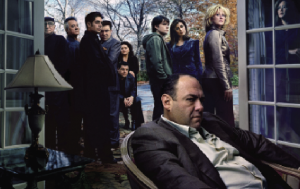Is family history ‘real’ history?
Published in Features, Issue 5 (September/October 2013), Volume 21Genealogy is a branch of history and worthy of proper study, although this is still disputed by a majority of academic historians. Their opposition is twofold: the restricted questions that family historians ask of their source material, and the narrow focus on the individual family that is the subject of enquiry. Both have been used to call into question whether family history can provide a sufficiently broad canvas to say anything interesting about the wider society.
Family history is the study of real people’s lives, which it documents not in statistical terms but using records of the landmark events of births, marriages and deaths. It also draws on the more mundane details of everyday life recorded in newspapers, land and estate records, parish records and legal documents, to name but a few. In family history we estimate a generation as 30 years, and typically we would trace a branch of a family over three to five generations. As a medieval historian in Trinity College I was trained, because of the paucity of records, to squeeze every last drop of evidence from the sources, and in this sense there is a similarity between medieval and family history.
A good family historian uses the knowledge and skills of the trained historian, although the methodology is subtly different. The family historian starts from the earliest verifiable evidence and works backwards in time from that point; the success of the investigation rests squarely on the historian’s primary research, and hence on his/her knowledge of the sources. Family history is not unlike a continuous textual analysis exercise: you are constantly required to evaluate your sources. When was a document compiled, by whom and for what purpose? How do we assess bias in a source, and how do we deal with contradictory or conflicting evidence?
In addition to a rigorous historical methodology, the family historian can also use the qualitative research skills of the social scientist to collate source material for each study, using a variety of methods, including informal interviews of family members, analyses of personal documents produced within the family group, or even the family lore passed down through generations. (When researching the family history of the poet Nuala ni Dhomhnaill I learned not to discard such evidence as ‘folklore’ holding little or no historical relevence. Oral traditions, like any source, must be critically evaluated, and where possible corroborated by documentary evidence. Although a complex source to use, the stories thus preserved are the personal histories of families and communities that were never formally recorded.)
Where a rigorous methodology has been used to compile each family history, it can be argued that the resulting case-studies equate to fieldwork in empirical research. And even if we accept that a single family history does not shine a sufficiently bright light on the past, what of a thousand such histories? In almost twenty years I’ve completed well over 1,000 such family histories, either working alone or as part of the Eneclann research team. The key to successful research is a rigorous knowledge of the primary sources.
In the coming months I hope to explore the sheer variety of source material that survives in archives and record repositories in Ireland and the UK, and to examine their use in Irish family history. Some readers will probably know many of them already, but I would contend that sources such as the Valuation Office records, the Registry of Deeds, Petty Sessions Court records or the Landed Estate Court Rentals are underused by family historians, because they are perceived as being too difficult or as having a narrower social coverage than is actually the case.
Once you begin to drill down to the bedrock of the sources, you may also find yourself questioning some of the received wisdom of Irish history. For example, which proved more divisive in eighteenth-century Ireland—religion or class? You may be surprised at what you find! HI
Fiona Fitzsimons is a director of Eneclann, a Trinity College campus company, and of findmypast Ireland.

















